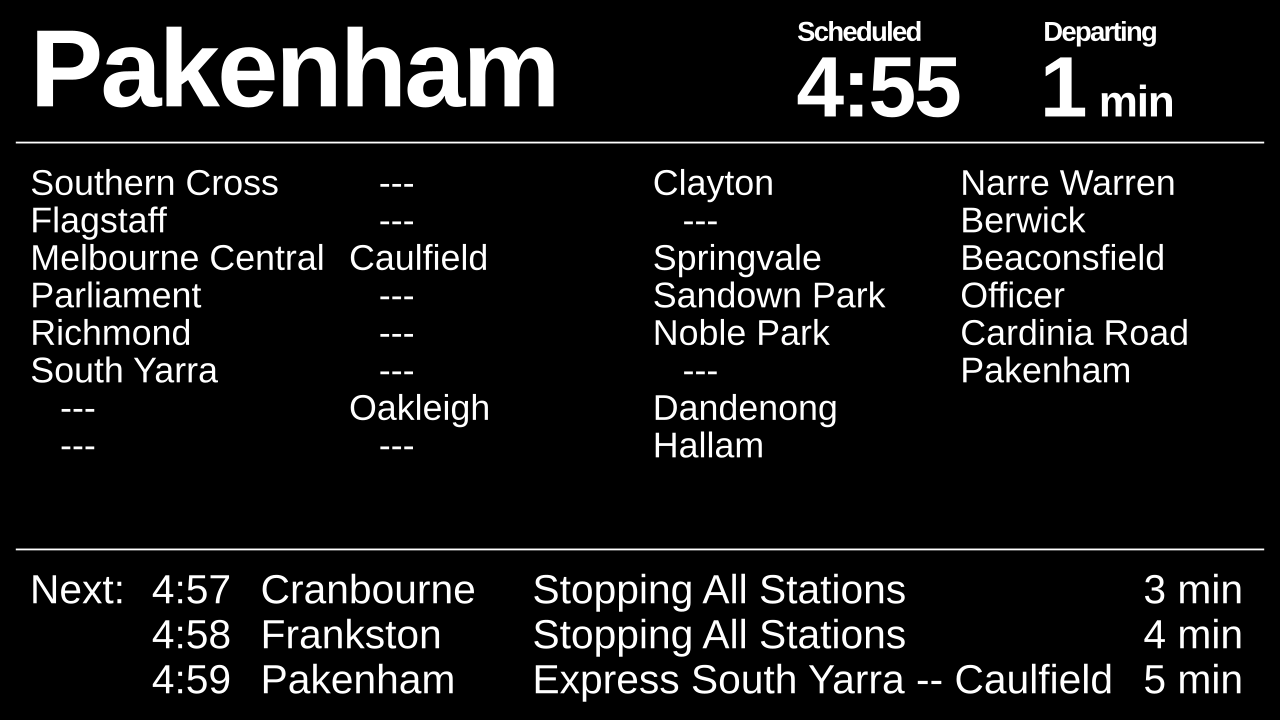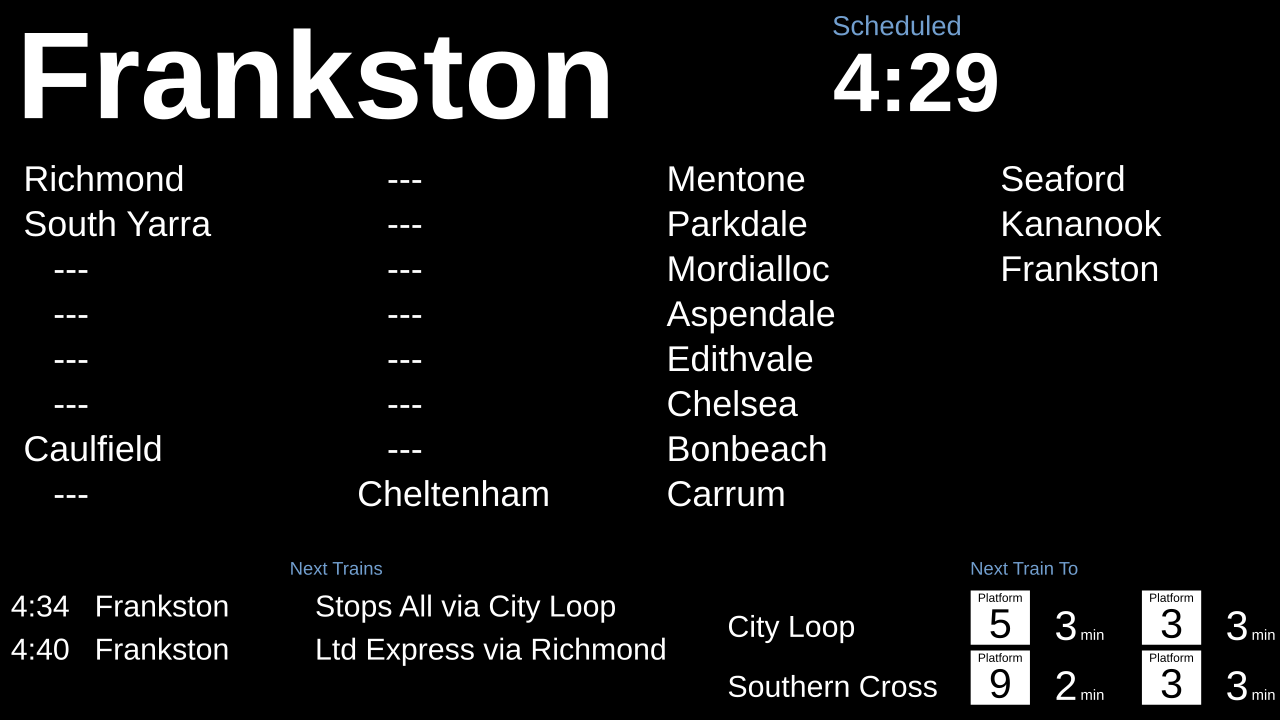-
Adelaide Metro PA noises
Trams
- Welcome aboard. This is the tram service to the Entertainment Centre.
- Doors are about to close, please stand clear.
- For your safety, please hold on at all times while the tram is moving.
- The next stop is University. Exit on the left in the
-
DRM Round-up: Q4 2018
Merry Christmas! You know what's not merry? DRM. Let's see how the numbers have moved since last quarter.
… »I have a policy of refusing to purchase any eBooks encumbered with DRM, which I observe strictly. My frustration has grown so immense that I have
-
Investigating an early-2010s gaming DRM system: Part 4
Last time, we investigated how an early-2010s gaming DRM system approached machine-based licensing. This time, we'll investigate exactly how the DRM system interacts with the game to accomplish its ends.
Structure of the DRM system
Looking at the game binary, FooBarBazX.exe, for the… »
-
Editable PTV Passenger Information Display System (PIDS) signs
Tram stop departure information – SVG
SmartBus departure information – SVG

Platform departure information – SVG

Platform departure information (Flinders Street) – SVG

Platform departure information (Clayton) – SVG

Platform departure information (Clayton – Not taking suburban passengers) – SVG

Platform departure information (Richmond) – … »